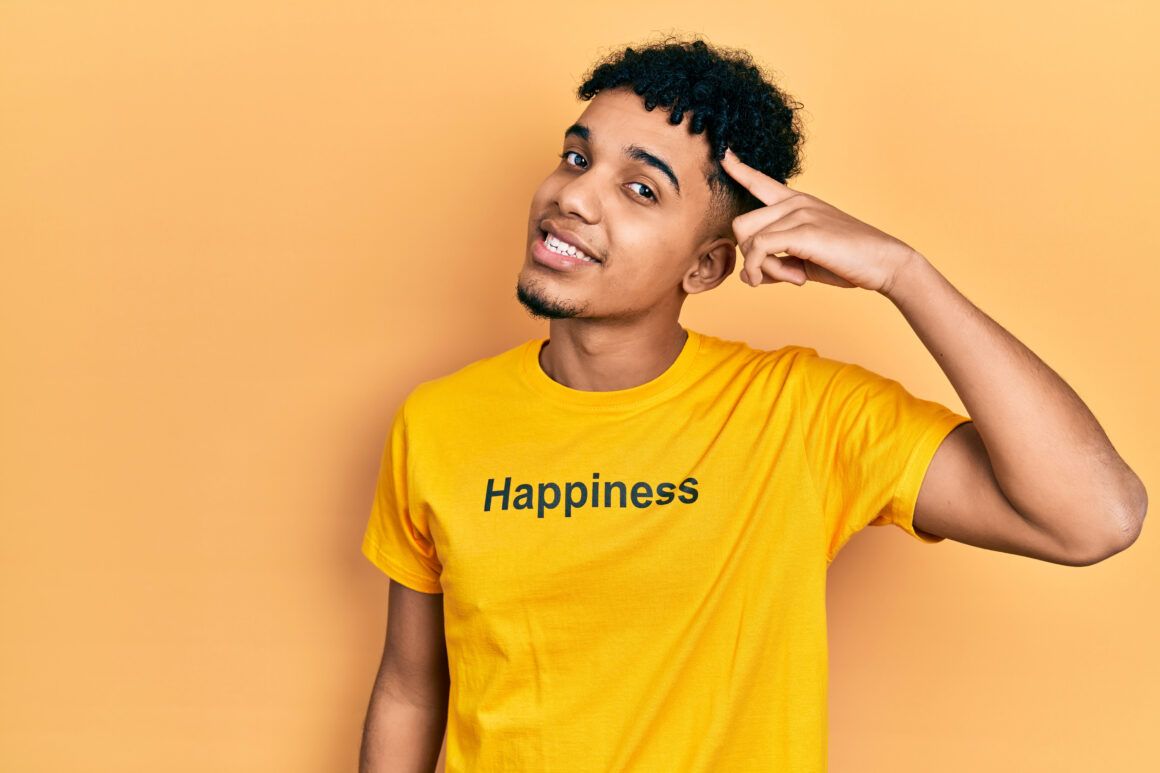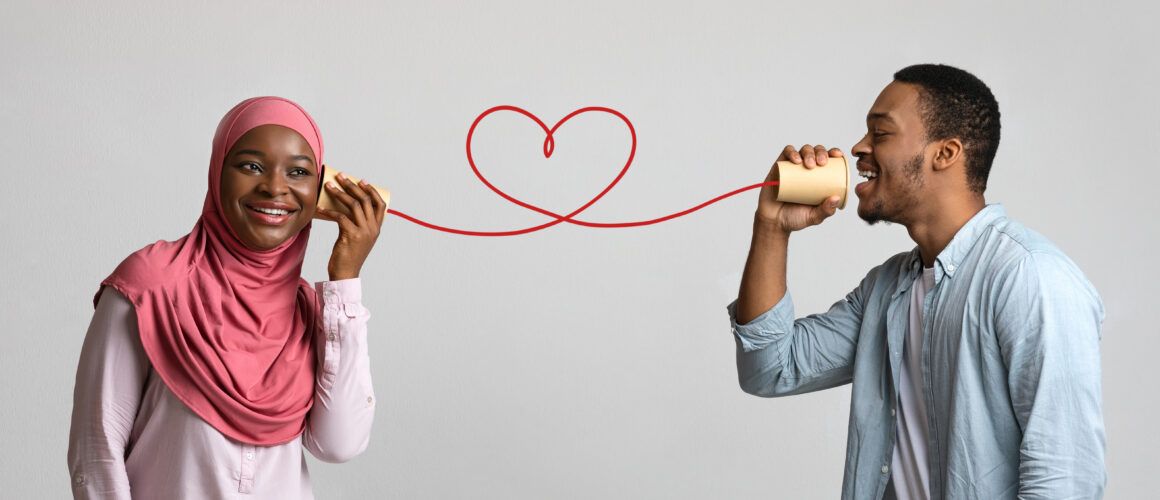The Ultimate Guide to Healthy Relationships
By Julian Lewis • May 18, 2022

Romantic relationships have evolved to include a vast and unique array of arrangements, including traditional monogamous relationships, non-monogamous, and polyamorous ones.
No matter what kind of relationship you are in, now more than ever, there is a collective desire for relationships that have more depth and connection.
Whether you are in a long-term committed relationship or ready for your next meaningful connection, we want to help prepare you for the relationship of your dreams. Here are some of the essential building blocks to creating loving, healthy relationships.
Love Yourself First!
Tom Cruise’s cheesy movie line "you complete me" from Jerry McGuire created a generation of relationship seekers searching for a partner to make them whole. As if one can't be whole on their own. 🤦🏽♀️
If you are wondering why you should learn to love yourself first, a healthy relationship with a partner starts with a healthy relationship with yourself. So how do you get complete on your own and learn to love yourself?

Start with clearing the emotional clutter of your past. Think about every unresolved issue from your past (i.e., childhood, relationships, trauma) as a piece of baggage you pick up and add to your relationship luggage set. The more you carry, the more clutter and weight you bring into the relationship.
Healing from past trauma and pain is a game-changer for you and future relationships. We understand it's not easy and may require professional support. Seek a life coach or mental health professional to help you unpack the clutter.
We guarantee once you lighten your load, you will find a treasure trove of wisdom gems. We call these breakthroughs, and they provide insights and clarity that will awaken you to your higher self.
Doing the inner work will not only build your self-esteem but provide a conduit to emotional freedom, free of the weight of your past that has been weighing you down.
Clearing your past's mental and emotional clutter creates space for self-awareness, creativity, bliss, and other higher-vibration emotions. It also gives you more time and energy to focus on things or people that bring you joy.
When you are happy from the inside out, meaning from loving yourself and being comfortable with who you are, you begin emitting an energetic vibration based on the law of attraction and will start attracting like-minded individuals.
You are also likely to be more loving, peaceful, and kind in relationships. Expanding your self-awareness will increase your emotional intelligence (EQ), which is critical to helping you navigate conflict and relationship challenges.
When two individuals heal from their past and then come together, self-aware of their triggers, they have an excellent foundation for a healthy relationship.
Develop a Strong Set of Core Values
Dedicating time to growing and healing into a more self-aware, evolved person will provide greater insight into who you are and your needs and wants.
You can hone your core values and their role in your current relationship from this place of clarity.
Core values are the root beliefs that act as your GPS to help you operate in life. Here are some examples of core values:
Abundance | Accountability | Acceptance | Adaptable | Adventurous | Acceptance | Affection | Attentive | Awareness | Authenticity | Balance | Confidence | Connection | Conscious | Depth | Diversity | Empathy | Emotional Intelligence | Excellence | Faith | Family | Forgiveness | Friendship | Fun | Generosity | Gratitude | Goal Oriented | Growth Mindset | Healthy Lifestyle | Integrity | Intelligence | Inspiring | Intimacy | Joy | Kindness | Learning | Loving | Passionate | Patience | Peaceful | Reciprocity | Reliability | Respect | Responsibility | Romance | Sense of Humor | Self-care | Self-mastery | Self-respect | Spirituality | Timeliness | Trust | Truth | Understanding | Wisdom | Wealth
To help you get started on determining your relationship's core values, write out the core values important to you in a relationship. Rank them on a scale of 1-10, with ten being the highest and one the lowest.
If you're currently in a relationship, see how your partner ranks these values as well. If your values are ranked vastly different, can you live with that, or is it a deal-breaker?
Do you notice any friction with your partner regarding specific values? Is this an ongoing battle or point of contention for you?
If you're currently single and dating, you can bring up individual values through conversation or observe ongoing interactions to determine your compatibility.
Operating from your values is a form of self-love. It also helps you weed out dating prospects or end relationships with less emotional fallout because it becomes about alignment with your values versus behavior.
For example, You rank trust, healthy lifestyle, and growth mindset at a ten, but your romantic interest is constantly jealous, only eats junk food, and shows zero interest in self-improvement. What they're doing is not bad or wrong; your values are not in alignment with what you have deemed essential for a loving, healthy relationship.
Core value conversations provide an opportunity to learn more about each other and the "why" behind individual rating systems. They provide deeper insights into your partner. Establishing mutual core values that you operate from together will make your relationship incredibly stronger.
Establish and Respect Boundaries in Relationships

Boundaries in relationships are the psychological lines drawn in the sand between you and your partner to help you feel safe and protected.
They also keep you in integrity with yourself and your core values. Boundaries include many different factors, such as physical, mental, emotional, sexual, financial, or expectations in a relationship.
We model boundaries we witnessed growing up. Many people enter relationships repeating patterns of generational behavior. They are unaware they have a blind spot with boundaries and often interpret personal boundaries as a form of rejection. However, establishing and respecting boundaries in relationships is a real sign of growth and maturity.
Make sure to discuss boundaries with your partner. Healthy boundaries help teach our partners how to treat us and are essential to discuss. Here are several ways you can communicate your boundaries:
- "I love spending time with you, but tonight I need some time with my friends."
- "I'm tired. Can we cuddle tonight?"
- "That doesn't feel good. Can we try another position?"
- "I prefer we set up one bank account for household expenses and individual accounts for personal use."
- "Please be on time. When you're consistently late, it feels like you don't value my time."
- "I'm not okay when you raise your voice with me."
- "I'm feeling flooded with emotions right now. Can we talk in a few hours so I can sort through my feelings?"
Setting healthy boundaries will have you feeling respected by yourself and your partner and ultimately help you feel more comfortable. You will also feel heard and understood, leading to less stress, anxiety, and conflict in the relationship.
Side note: Introducing boundaries should not be met with resistance, disrespect, or cause the relationship to fall apart. If any of this shows up, then your partner may lack the level of maturity necessary to be in a relationship with you.
Also, keep in mind that a lack of boundaries opens the door to manipulation and narcissists. If you ever feel you are a victim of domestic violence, please don’t hesitate to reach out to the Family and Youth Service Bureau or the Nationals Domestic Violence Hotline. The U.S. Department of Health also provides health and human services that might be able to help.
Be a Support System
"A healthy relationship is when two independent people come together and just make a deal that they will help each other be the best version of themselves." - Unknown
When a partner is down or in need, our natural inclination is to fix the problem. But we're not there to be the fixer, therapist, or teacher. Our primary job is to listen and build trust by holding space for them to share insecurities and dreams alike.
Secondly, we need to create a comfort zone for our partners to work things out, grow, and expand without being pushed.
Lastly, be their biggest cheerleader when supporting the pursuit of their goals and dreams.
Mindful, supportive communication can sound like this:
- "I promise to always be here for you."
- "I learn a lot from you."
- "You inspire me."
- "That's a great idea! How can I support you?"
- "I like the way you support me when I'm feeling down or stressed."
Inspiring and supporting the greatness in each other builds confidence and resilience in your partner and the relationship.
Raise Your Emotional Intelligence (EQ)

Wouldn't life be amazing if we could sail through love and relationships without ever having an argument or fight? Unfortunately, It's just not possible.
The general belief is that all conflict is destructive and unpleasant, leading people to become conflict-avoiders. But the truth is, being at odds with your partner can be healthy, strengthening and deepening your relationship. Healthy conflict means managing differences with mutual trust and respect without being verbally abusive, bullying, or shutting down.
Resolving a dispute is primarily based on your emotional intelligence, also known as EQ, which is the ability to perceive, use, understand, manage, and handle emotions. Quite simply, when we learn to respond in the moment versus react, we tap into our emotional intelligence. Reacting is being emotional.
How to communicate and behave in the heat of the moment is the real challenge. Tapping into conscious communication and upping your EQ and conflict resolution skills is paramount because how you choose to resolve disagreements can make or break a relationship.
Ask yourself the following question to get a better understanding of your current EQ:
- Who taught you how to resolve conflict?
- Are you modeling similar behavior you observed in childhood?
- How do you show up when you're upset:
- Do you scream and yell?
- Do you shut down?
- Do you avoid hard conversations?
- Do you blame the other person?
- Do you get defensive?
- Do you put your partner down?
- Do you interrupt or talk over your partner?
- Do you listen to respond or to understand?
If you answer yes to any of these questions, we have good news for you! You can unlearn the behavior! We recommend working with a life coach specializing in communication and conflict resolution to increase your EQ. You can also explore the following methodologies:
Nonviolent communication is an approach to communication-based on principles of nonviolence. It is a technique to end disagreements, but rather a method designed to increase empathy and improve the quality of life of those utilizing the technique.
The Imago Dialogue helps couples understand, validate and empathize with one another's unique reality, rather than resorting to anger and reactivity. It involves three steps: mirroring, validation, and empathy.
Good communication means getting comfortable having hard conversations. Yes, uncomfortable conversations are hard, but avoiding conflict makes life more challenging.
It's also essential to communicate your needs. Ask for what you want and be specific versus demanding or passive-aggressive.
For example, "You never take me out" can be rephrased as "I'd love it if we could have a date night once a week. Perhaps next week we could go out to dinner at that new restaurant that just opened up. Are you okay if I make reservations for us?"
There is no such thing as winning an argument. Remember, you're on the same team. The goal is to seek to understand and resolve conflict calmly and respectfully.
Life is inevitably going to throw curveballs at the relationship in the form of stress, work, family, kids, or differences in opinion. It's how you navigate the trying times together that will create a stronger bond between you and your partner. Growing together in a relationship elevates you to your highest level of self.
Keep it Fresh & Fun!

The first 3-5 months of a relationship are typically considered the "honeymoon" phase. Once we come out of this phase or kids come into the relationship, we inevitably fall into the comfort zone trap. You know, that place where we get caught up in our day-to-day routines, or get lazy and become couch potatoes.
Remember this, nothing good comes from the comfort zone! It’s mission-critical to break the routine pattern.
Healthy intimate relationships should include lots of play and sexual activity. Here are some fun ways to shake up the monotony:
- Schedule your fun by planning a weekly date. Putting it on the calendar makes it a priority and gives you something to look forward to in your busy week.
- Play outside. Fresh air and being in nature will ground you together and release those feel-good endorphins.
- Explore a new hobby or activity together. It could be as simple as playing a new board game or trying a foodie walking tour around your city. Trying something new together creates a unique bonding experience and beautiful memories.
- Spend time with others. It’s amazing how much you can learn about each other when interacting with a group of friends. For instance, you may discover your partner’s perspective on a topic you’ve never discussed together.
- Try a restaurant in a new neighborhood. A change of scenery and trying new cuisine can open you up to new cultures and therefore new conversations.
- Get creative in the bedroom. Just remember that whether you’re dating or in a committed relationship, it’s important to discuss sexual boundaries with your partner to enhance connection and pleasure.
Teamwork Makes the Dream Work
The key to all of it is to surround yourself with like-minded people who are as committed to doing “the work" and open to growth and self-discovery.
Remember, all romantic or platonic relationships are opportunities to practice and implement all of the above. Like with anything else, the more you practice, the sooner you create behavioral change.
Your partner or tribe should provide space and grace for each to learn and make mistakes as you move towards self-mastery. Allowing this will sweeten the journey of building loving, healthy relationships that stand the test of time.
For more on this topic, check out:
How to find life balance in 10 simple steps
# # #
About the author: Remy Meraz is the co-founder and CEO of Zella Life, a coaching platform bridging the diversity gap to help professionals of color to grow and thrive.
Read more about: Healthy Relationships
About Julian Lewis
Julian Lewis is a driven and accomplished professional with a passion for driving positive change in the business world. He is the co-founder and COO at Zella Life.
His own experience as a professional of color in a Fortune 500 company led him to discover the limitations for advancement that many professionals like himself face. Determined to reach his full potential, Julian became an established business coach and entrepreneur, committed to supporting others in their pursuit of personal and professional growth.
Today, Julian is a recognized corporate trainer, coach, and leader, known for his ability to leverage real-life experiences and evidence-based methodologies to affect positive change within individuals and organizations. As the leader of Zella Life's coaching division, he is dedicated to empowering individuals and businesses to achieve their full potential.